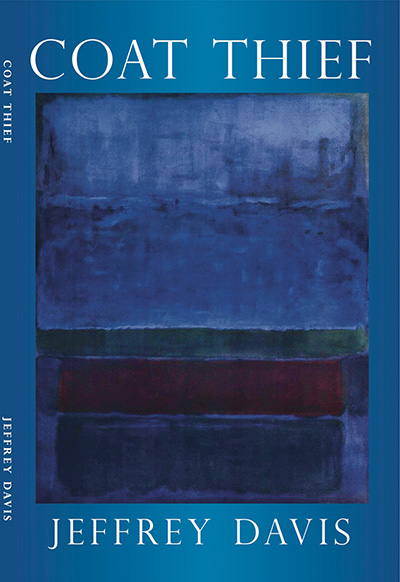
Give Us This Day Our Daily Disruptions: A journey into poetry, wonder, and the creative mind
—
You can be stripped of everything at any moment. That awareness guides me to pay attention to what I think I have in my possession.
If each of our lives were a book, then a day in the life can ramble on like an incoherent run-on sentence. If you’re like me, you can shoot ahead with your productivity hacks, proud by day’s end for getting things done — or by dusk you simply might feel like the walking dead.
It doesn’t take long for our feet to wear a rut born of habit in our daily path.
If we’re fortunate, during any given day something surprising startles our heart long enough to arrest the bustle and disrupt our rut. An impromptu conversation with a stranger flips the way you view your relationship. The violinist in the subway, hat at feet, plays a melody that halts you in your tracks and lets you feel for once the profound unrest your job gives you. The way dusk light strikes your ailing mother’s face lets you see as if for the first time the human being inside.
Or a poem, so simple and unobtrusive, shivers your spine as you absorb inside the planet’s plight that beforehand was an abstraction.
In such disruptions, an opening occurs.
Your notions of what matters, what you’re supposed to care about — something strips you of them. For a moment. For a moment, the to-do list, the errands, the meeting, the airplane can wait.
I’m a bit obsessed with tracking those oft-quiet disruptions, openings, strippings.
I have been for a long while at least since I was 20 years old and got my tow head rattled by writers like Henry David Thoreau and poet-pediatrician William Carlos Williams. I was a distracted kid given to daydreams and abstractions, my senses not always rooted in the ways of this world, but Thoreau’s words acted like a strange calling to ground down: “It is something to be able to paint a particular picture, or to carve a statue, and so to make a few objects beautiful; but it is far more glorious to carve and paint the very atmosphere and medium through which we look.”
While my friends took the right roads to pre-law, pre-med, pre-MBA, I veered left into the humanities and poetics. To my friends at the time, the highest good seemed to be to make money. I simply wanted to make meaning. Could you make a living making meaning by painting your perception? I wondered and set out to find out.
Studying and writing poetry became a way to open my eyes and pay attention better.
It was less a medium of self-expression than of self-expansion. I stood on the Austin drag, notebook in hand, and observed stragglers and students alike, talked with them, imagined their lives more richly. I didn’t hunger for a life of bravado, fame, and mountain-scaling adventure. I wanted instead a simple life of inner adventure that constituted how to pay attention to any day that I might behold its details well enough to make something of it – meaning or art. If I learned the craft ably enough to render something worth reading that would in turn shift the way someone else felt or reshaped a person’s day in a good way, well, that would be a bonus.
But I admit there is something subtly rebellious in writing poetry in a prosaic world, in shaping a lyrical life in what seems at times a tone-deaf world abuzz. Reading poetry, it turns out, can be outright dangerous.
Poetry and the Inner Outlaw
A poem can quietly stir our “outlaw brain” from its cave. If the law-abiding brain is the literal, logical, rational brain that insists upon black-and-white thinking, productivity, and bottom-line rationales, then the outlaw brain says, “Wait. There’s more. And it’s messy.” The outlaw brain thinks in metaphor, paradox, ambivalence. Nuanced feelings and ideas get aroused, and now that irritation you’ve been trying to ignore – that if itched a bit more might reveal a deeper wound — won’t go away.
You can carry certain lines from certain poems with you like your life’s touchstones. “You must change your life” is the startling closing line to a poem by Rainer Rilke, and I hear that line like a clarion almost every 7 years. “I wake to sleep/and take my waking slow” mirrors how I view my life’s unfolding and opens Theodore Roethke’s “The Waking” – a poem I read to an English Department I chaired on the day I resigned from that post and resigned from full-time teaching or full-time working for anyone but my best self thereafter, nearly 20 years ago. “Live in the layers, not on the litter” and “I am not done with my changes” comes from “The Layers” by Stanley Kunitz, who died at 101 years old. Are you done?
Some poems act as prayers or meditations that prompt us to slow down and contemplate. Others act as encoded calls to revolution in terms of how we think, act, relate, or face big issues. Why, we must ask, was a man recently imprisoned in Turkey for reading a poem? Why are poets in Cameroon and China imprisoned? How do we speak out about the things we care about?
Poetry excites our inner music, and for that reason Plato wanted poets exiled from his philosophical Republic.
Poetry, according to some neuroscientists, is music of the mind.
Their research so far shows that some poems stimulate brain areas associated with introspection. Poems can turn on the brain in ways music does, producing the feeling of a “shiver-down-the-spine.” Poetry helps us find the music in monotone days.
And poetry reminds us we are feeling creatures challenged to grasp one another’s reality. 90% of people in the US surveyed by the Illinois-based Poetry Foundation said they read poetry in part because it helped them understand other people. In a divisive social and political climate that encourages people to take sides and stances, a poem like African-American poet Patricia Smith’s “Skinhead,” told from the point of view of a white male self-described racist and homophobe, can be a radical act of compassion. Poetry helps us favor curiosity over categories.
Coat Thief
These days I live in a farmhouse in New York’s Hudson Valley from where I run an international consultancy business and grow a family with my wife and two girls. My small team and I help professionals, authors, and teams shape their message with integrity and build a business, brand, and platform to support it. Saying those words about building a business and growing a family would be alien if not anathema to that 20-year-old’s ears.
But I still write poetry.
One early morning, I tiptoe to my studio before anyone else is awake. Within minutes, my six-year-old girl wanders in, says she has an upset stomach, and vomits an amoeba-shaped puddle on the hard wood floor. I coax her to the chaise lounge, give her water, and play bansuri flute music on Pandora to quell her spirits. As I get to the mat to practice a little yoga, the two-year-old girl bounces in. I grab a box of Legos, guide her to a corner of the study, and with both girls nearby, practice and then write. In such a morning there is poetry. There is music.
The paying attention required to make a poem slows down my electrified mind. It grants me something tangible and gratifying to show that I gathered some minutiae from the day and made something of it – not unlike a tow-headed boy still filling his pockets with pebbles to see if he might make a simple sculpture or rock mound for his mother.
Many poems are born from wonder. They arise from ferreting my way into the most ordinary moments.
But they also arise from what I do not completely comprehend and feel stymied in responding to in any other way than in making a poem – why men and women butt heads and speak in different tongues, how we human beings fixate on measuring meaning with data, how we find lyricism amidst confusing life transitions, how we relate to our wild feathered and finned neighbors, how art and art-making change us, how we try to stretch time, the challenges we have in singing out about what matters.
The other side of making poems is giving poems. I want a poem to rattle something stuck ajar, however delightful or disruptive that jolt may be.
The poetry collection Coat Thief proffers 38 such quiet jolts, I hope. The collection begins with an epigraph by Annie Dillard: “Each day is a god, and holiness holds forth in time.” By most cultural clock standards, each day only gives us 24 hours. To me, that’s like being given only 14 lines in a sonnet.
What can you do with those constraints?
How much art can you make?
How can you paint part of the day with your perception?
How will you punctuate your life sentence?
______________________________
The author reads a poem from Coat Thief:
You may also enjoy Tracking Wonder by Jeffrey Davis
